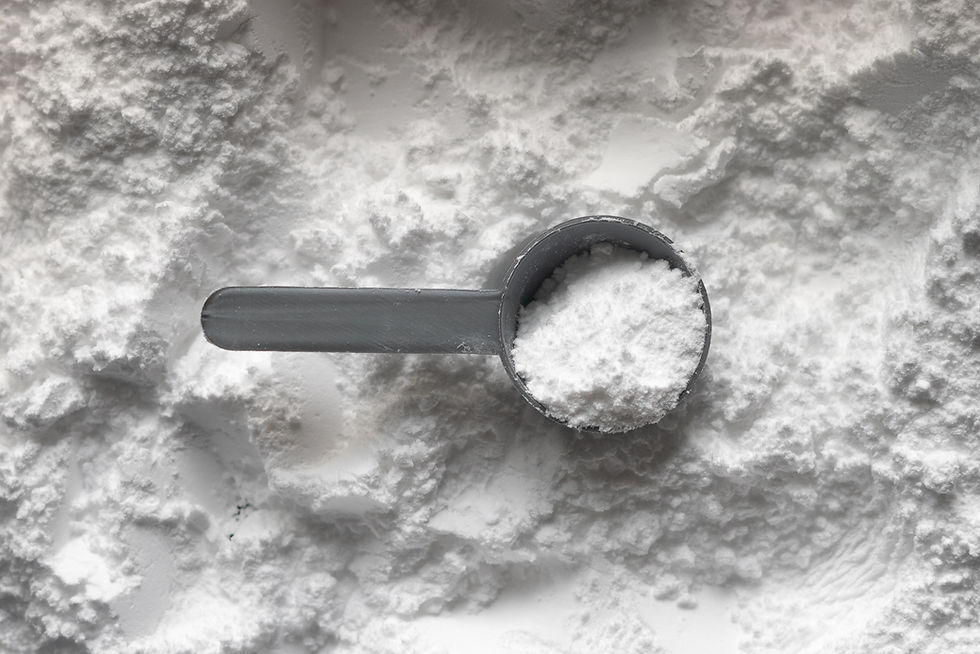Beta-alanine Supplementation - everything you'd need to know | Balance
- Jamie
- Jun 20, 2023
- 4 min read
Beta-alanine has gained significant popularity among athletes and fitness enthusiasts for its potential to enhance performance and overall health.
In this comprehensive guide, we will delve into the world of beta-alanine supplementation, exploring its benefits, mechanisms of action, dosage recommendations, potential side effects, and more.
Whether you're an experienced athlete or just starting your fitness journey, this guide will provide you with valuable insights to optimize your training and achieve your goals.
What is Beta-Alanine?

Beta-alanine is a non-essential amino acid, meaning that our bodies can produce it naturally.
Unlike essential amino acids, which must be obtained through the diet, beta-alanine is synthesized internally.
When combined with the amino acid histidine, beta-alanine forms carnosine, a dipeptide stored in skeletal muscles. Carnosine plays a crucial role in reducing lactic acid accumulation during exercise, leading to improved athletic performance.
How Does Beta-Alanine Work?
In our muscles, histidine levels are typically high while beta-alanine levels remain low. This imbalance limits the production of carnosine. By supplementing with beta-alanine, carnosine levels in the muscles can be significantly increased. This elevation of carnosine levels has been shown to enhance exercise performance by reducing fatigue and improving time to exhaustion.
During exercise, glucose is broken down through a process called glycolysis, which serves as the primary source of fuel for high-intensity activities. As glycolysis progresses, lactic acid builds up in the muscles, leading to fatigue. Carnosine acts as a buffer, reducing lactic acid accumulation and delaying the onset of muscle fatigue. By increasing carnosine levels, beta-alanine supplementation allows athletes to push their bodies further and perform at higher intensities for longer durations.
Benefits of Beta-Alanine Supplementation
1. Enhanced Muscular Endurance
One of the primary benefits of beta-alanine supplementation is its ability to improve muscular endurance. Numerous studies have demonstrated that individuals taking beta-alanine supplements can perform additional repetitions during resistance training sets, particularly in the range of 8-15 reps.
This increased endurance can be attributed to the buffering effect of carnosine, which helps reduce the build-up of lactic acid and delays the onset of muscle fatigue.

2. Improved High-Intensity Performance
Beta-alanine supplementation has also been shown to enhance performance during high-intensity activities such as sprinting, rowing, and other cardiovascular exercises.
By increasing carnosine levels, beta-alanine allows athletes to maintain high levels of performance for longer periods before experiencing fatigue. This can be especially beneficial for individuals participating in sports or activities that require short bursts of intense effort.
3. Potential Muscle Gain
While beta-alanine supplementation does not directly lead to muscle gain, its effects on energy levels and performance can indirectly contribute to muscle growth. By pushing your body to its limits and consistently challenging yourself during workouts, you create the conditions necessary for muscle hypertrophy.
Beta-alanine supplements can provide the extra energy and strength needed to push through plateaus and maximize your training potential.
Combining Beta-Alanine with Other Supplements
To further enhance athletic performance and maximize the benefits of beta-alanine supplementation, it can be beneficial to combine it with other performance-enhancing supplements. Two commonly used supplements that synergize well with beta-alanine are creatine and sodium bicarbonate.

Creatine
Creatine is a widely studied and effective supplement that boosts ATP availability, providing additional energy for high-intensity exercise.
When taken together, beta-alanine and creatine have been shown to improve exercise performance, increase strength, and promote the growth of lean muscle mass.
Combining these supplements can yield greater overall benefits for athletes looking to optimize their training.
Sodium Bicarbonate
Sodium bicarbonate, also known as baking soda, has been found to improve exercise performance by reducing acid levels in the blood and muscles.
When used in conjunction with beta-alanine, sodium bicarbonate can further enhance performance, particularly during exercises that are hindered by muscle acidosis. Studies have shown that the combination of these two supplements can have synergistic effects, allowing athletes to perform at higher intensities for longer durations.
Dosage Recommendations for Beta-Alanine
To achieve optimal results, it is important to follow proper dosage recommendations for beta-alanine supplementation.
The recommended dosage ranges from 2.4 to 6.4 grams per day.
It is advisable to start with a lower dosage and gradually increase it as your body adjusts to the supplement. Splitting the daily dosage into smaller increments throughout the day can help prevent a tingling sensation called paresthesia, which is a common side effect of beta-alanine supplementation.
Potential Side Effects of Beta-Alanine
While beta-alanine is generally safe for most individuals, there are potential side effects to be aware of.
The most common side effect is paresthesia, which is a tingling sensation typically felt in the face, neck, and hands. This sensation can be minimized by taking smaller doses spread throughout the day or by using time-release formulations of beta-alanine. It is important to note that paresthesia is not harmful and will subside as your body adjusts to the supplement.
Another potential side effect of beta-alanine supplementation is a decrease in taurine levels. Beta-alanine competes with taurine for absorption in the muscles, which can lead to reduced taurine levels. Taurine plays a role in various physiological processes, including cardiovascular function and muscle contraction.
If you are concerned about this potential side effect, it is advisable to consult with a healthcare professional before starting beta-alanine supplementation.
Conclusion
Beta-alanine supplementation offers a range of benefits for athletes and fitness enthusiasts looking to improve their performance and overall health. By increasing carnosine levels in the muscles, beta-alanine helps reduce fatigue, enhance endurance, and optimize high-intensity performance.
When combined with other performance-enhancing supplements like creatine and sodium bicarbonate, the effects of beta-alanine can be further amplified.


Comentarios